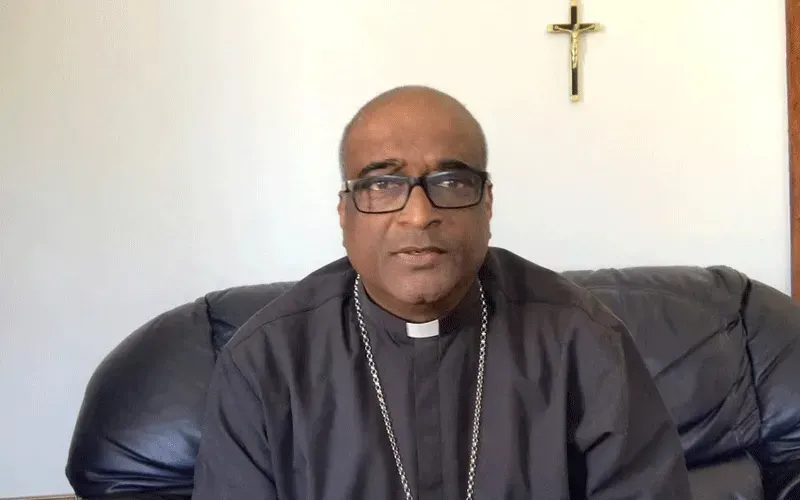The member of the Oblates of Mary Immaculate (OMI) cautions against the danger of “self referentiality,” which he describes as “a technical term referring to an extreme form of independence, which screams out that we need nobody and that no one can teach us anything.”
He underscores the value of listening to each other as a pilgrim people of God saying, “The Church is a group of struggling people who gather around the Cross and try to work out their future from that perspective. Because the cross symbolizes struggle, pain and the victimizing of the innocent, many try to bypass it.”
The Catholic Bishop further describes the Church as a “field hospital for the wounded” who, amid the struggles of life, need to “learn to listen and to dialogue.”
“We will have to listen to the struggling people symbolized by the struggles represented by the Cross, and from there, work out what is the next right step,” he emphasizes.
The 68-year-old Bishop looks at the Synod on Synodality as depicting “the process of change, a process of becoming something new by involving the local churches.”
“It is important that the synodal process be exactly this: a process of becoming, a process that involves the local Churches, in different phases and from the bottom up, in an exciting and engaging effort that can forge a style of communion and participation directed to mission.” Bishop David says.
Reflecting on the initial phase of the synodal process that sees consultations at church’s local level, the South African Bishop urges the people of God to “embrace the art of listening”, and adds, “a guide on the same has been developed and sent to various constituencies in the Archdiocese of Cape town.”
“At this time, we ask all Parish Priests/Administrators, Religious Superiors, lay leaders, and Institutions to facilitate ‘a listening.’ Guidelines have been developed and these have been sent to the various constituencies in the Archdiocese,” the Auxiliary Bishop of the South African Archdiocese says in his October 15 reflection.
Silas Mwale Isenjia is a Kenyan journalist with a great zeal and interest for Catholic Church related communication. He holds a Bachelor’s Degree in Linguistics, Media and Communication from Moi University in Kenya. Silas has vast experience in the Media production industry. He currently works as a Journalist for ACI Africa.








